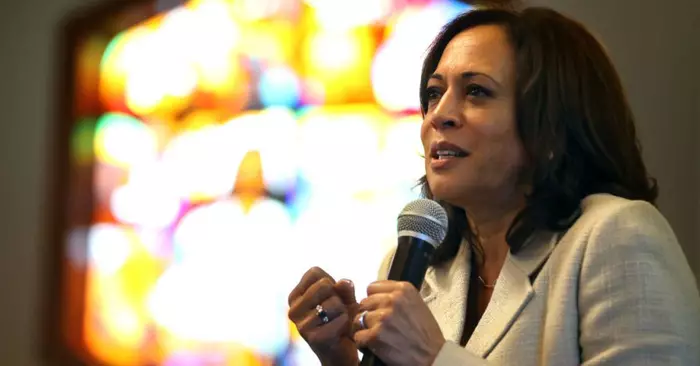Vice President Kamala Harris was recently honored as a “Phenomenal Servant of God” at a North Carolina megachurch, sparking both praise and criticism. The event, which celebrated her achievements and public service, included commendations for her work in government and advocacy. However, her personal background and political stances have raised eyebrows within certain Christian circles.
Harris, the daughter of a Hindu mother and a Baptist father, has spoken often about her diverse upbringing. Her husband, Douglas Emhoff, is Jewish, making their family a unique blend of faiths. Despite this interfaith background, some Christians have expressed concern that Harris’ personal beliefs and policies, especially regarding issues like abortion and same-sex marriage, conflict with traditional Christian teachings.
While some church leaders, including those at the event, have praised her service and commitment to justice, others argue that her positions on abortion and LGBTQ rights starkly oppose biblical teachings. NFL Hall of Famer Tony Dungy, for instance, criticized Harris’ support of abortion rights, questioning how her advocacy aligns with Christian values regarding the sanctity of life. Similarly, Bishop Patrick Wooden of North Carolina has expressed strong disapproval of Harris’ positions, particularly her involvement in officiating same-sex marriages and her perceived alignment with policies contrary to biblical Christianity.
The divide in opinions highlights the tension many religious communities face when political leaders are celebrated for their service while simultaneously holding views that challenge core Christian doctrines.
Despite the recognition of Harris at the North Carolina church, her political positions continue to be a source of division within Christian communities. Critics point out that Harris’ pro-choice stance, supporting abortion rights, directly conflicts with the Bible’s teachings on the sanctity of life. Christian leaders who oppose her stance argue that the right to life is a fundamental biblical principle, and any advocacy for abortion rights undermines this. This tension reflects the larger conflict between progressive political figures and more traditional Christian values that emphasize the protection of unborn life.
Additionally, Harris’ stance on same-sex marriage has drawn strong disapproval from conservative Christian circles. As a California attorney general, Harris was one of the first public officials to officiate same-sex marriages after they became legal in the state. While this move earned her widespread support from the LGBTQ+ community, many church leaders view it as contradictory to biblical teachings on marriage, which traditionally define marriage as a union between one man and one woman. This has led to accusations that Harris’ policies are more in line with secular, progressive ideologies than with Christian principles.
Despite the controversies surrounding her, Harris has defended her positions as consistent with a broader interpretation of justice and equality. In her view, protecting reproductive rights and supporting same-sex marriage are essential aspects of ensuring civil rights and personal freedoms in a diverse society. Her supporters within the Christian community, particularly more progressive congregations, argue that her focus on equality, social justice, and poverty alleviation are also aligned with Christian values, emphasizing love and care for the marginalized.
This debate also brings to light the broader issue of how political figures with diverse faith backgrounds navigate the complex relationship between personal beliefs and public policy. Harris, raised with influences from Hinduism, Judaism, and Christianity, often speaks about her interfaith journey and the importance of respecting all religious traditions. While this resonates with many Americans in a pluralistic society, it also complicates her relationship with evangelical and conservative Christian voters who prioritize biblical alignment in their political leaders.
Ultimately, the decision to honor Kamala Harris as a “Phenomenal Servant of God” at a megachurch in North Carolina highlights the complex and sometimes contradictory intersections between faith and politics. As Harris continues to navigate her role as a political leader in a deeply divided religious landscape, her actions and policies will likely continue to generate debate within both secular and religious communities across the nation.
